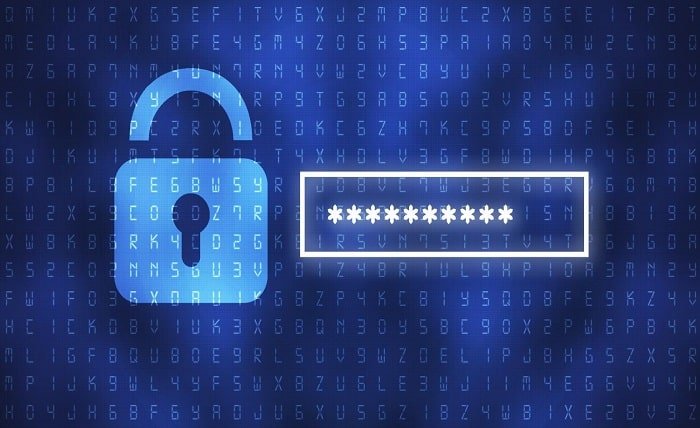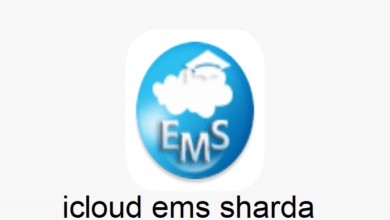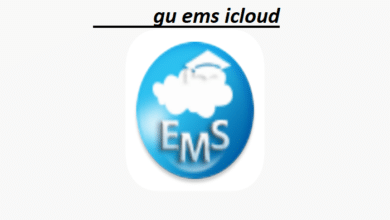Mastering Your GU iCloud Password: Security, Management, and Best Practices

In today’s digital landscape, securing your online accounts is paramount, and the GU iCloud password plays a crucial role in safeguarding your personal and professional data. Whether you’re an individual user or part of an organization, understanding the importance of your GU iCloud password is essential. This guide delves into the intricacies of the GU iCloud password, exploring its significance, how to manage it effectively, and best practices to ensure your information remains protected against unauthorized access and cyber threats.
The Importance of Your GU iCloud Password
Your GU iCloud password serves as the primary barrier between your sensitive information and potential intruders. It grants access to a wide array of services, including email, contacts, calendars, and backups of your devices. A strong GU iCloud password ensures that your data remains confidential, preventing unauthorized access that could lead to identity theft, data breaches, and other security compromises. Moreover, a well-managed GU iCloud password enhances your overall digital security posture, making it harder for cybercriminals to exploit vulnerabilities in your accounts.
How to Create a Strong GU iCloud Password
Creating a robust GU iCloud password is the first step in securing your account. A strong password typically includes a mix of uppercase and lowercase letters, numbers, and special characters. Avoid using easily guessable information such as birthdays, names, or common phrases. Instead, opt for a unique combination that is difficult for others to predict. Additionally, consider using a passphrase—a sequence of random words or a sentence—that is both complex and memorable. Regularly updating your GU iCloud password and avoiding reuse across multiple platforms further strengthens your account’s security, minimizing the risk of unauthorized access.
Steps to Reset Your GU iCloud Password
If you’ve forgotten your GU iCloud password or suspect it has been compromised, resetting it promptly is crucial. Start by visiting the Apple ID account page and selecting the “Forgot Apple ID or password” option. You’ll be prompted to enter your Apple ID, which is typically your GU iCloud email address. From there, you can choose to receive a password reset link via email or answer security questions to verify your identity. For added security, enabling two-factor authentication (2FA) provides an extra layer of protection, ensuring that only you can reset your GU iCloud password even if someone else knows your current password. Following these steps helps you regain access to your account while maintaining its security integrity.
Common Issues with GU iCloud Passwords and How to Resolve Them
Managing your GU iCloud password can sometimes present challenges, such as being locked out of your account, encountering verification errors, or dealing with suspicious activity notifications. If you’re locked out, ensure that you’re entering the correct password and that your device has a stable internet connection. In cases of verification errors, double-check the security questions or recovery email associated with your account. If you receive notifications of suspicious activity, immediately change your GU iCloud password and review your account settings for any unauthorized changes. Utilizing the built-in recovery options and staying vigilant about account activity can help you address and resolve common issues related to your GU iCloud password effectively.
Best Practices for Managing Your GU iCloud Password
Effective management of your GU iCloud password involves implementing several best practices to enhance security and ease of use. Firstly, avoid sharing your password with anyone and refrain from writing it down in easily accessible places. Instead, use a reputable password manager to store and organize your passwords securely. Secondly, enable two-factor authentication (2FA) for your GU iCloud account to add an extra layer of security, ensuring that even if your password is compromised, unauthorized access remains difficult. Additionally, regularly update your GU iCloud password and monitor your account for any unusual activity. By adhering to these best practices, you can maintain a high level of security for your GU iCloud account and protect your valuable data from potential threats.
The Role of Two-Factor Authentication in Securing Your GU iCloud Password
Two-factor authentication (2FA) significantly enhances the security of your GU iCloud password by requiring a second form of verification in addition to your password. When 2FA is enabled, accessing your GU iCloud account requires not only entering the correct password but also a code sent to a trusted device or phone number. This additional step ensures that even if your GU iCloud password is compromised, unauthorized users cannot access your account without the second factor. Implementing 2FA is a highly recommended practice for securing your GU iCloud password, as it provides a robust defense against common cyber threats such as phishing and brute-force attacks, thereby safeguarding your personal and professional data more effectively.
Tools and Resources for Managing Your GU iCloud Password
Managing your GU iCloud password efficiently can be streamlined using various tools and resources designed to enhance security and convenience. Password managers like LastPass, 1Password, and Dashlane offer secure storage and automatic filling of your GU iCloud password, reducing the risk of password theft through keylogging or phishing. Additionally, Apple’s built-in security features, such as the Apple ID account page and the Find My app, provide resources for managing and recovering your GU iCloud password. Utilizing these tools not only simplifies the process of handling your GU iCloud password but also ensures that your password management practices align with the latest security standards, offering comprehensive protection for your digital identity.
Conclusion
Securing your GU iCloud password is a fundamental aspect of protecting your digital life. From understanding the importance of a strong password to implementing best practices and leveraging advanced security measures like two-factor authentication, each step plays a vital role in safeguarding your personal and professional data. By taking proactive measures to manage and secure your GU iCloud password, you can significantly reduce the risk of unauthorized access and ensure the integrity of your information across all connected devices and services. As cyber threats continue to evolve, staying informed and diligent about your GU iCloud password security remains essential in maintaining a robust defense against potential breaches and data compromises.
Frequently Asked Questions
1. What is a GU iCloud password?
A GU iCloud password is the password associated with your GU iCloud account, which secures access to your personal data, emails, contacts, and other services linked to your Apple ID.
2. How can I reset my GU iCloud password if I forget it?
To reset your GU iCloud password, visit the Apple ID account page, select “Forgot Apple ID or password,” and follow the prompts to receive a reset link via email or answer security questions for verification.
3. Why is two-factor authentication important for my GU iCloud password?
Two-factor authentication (2FA) adds an extra layer of security to your GU iCloud password by requiring a second form of verification, making it harder for unauthorized users to access your account even if your password is compromised.
4. What should I do if I suspect someone has accessed my GU iCloud account?
If you suspect unauthorized access to your GU iCloud password, immediately change your password, enable two-factor authentication if not already active, review your account for any suspicious activity, and contact Apple Support for further assistance.
5. Can I use the same password for my GU iCloud account on other services?
It’s not recommended to use the same GU iCloud password across multiple services. Using unique passwords for each account enhances security by preventing a breach on one platform from compromising your accounts on others.





